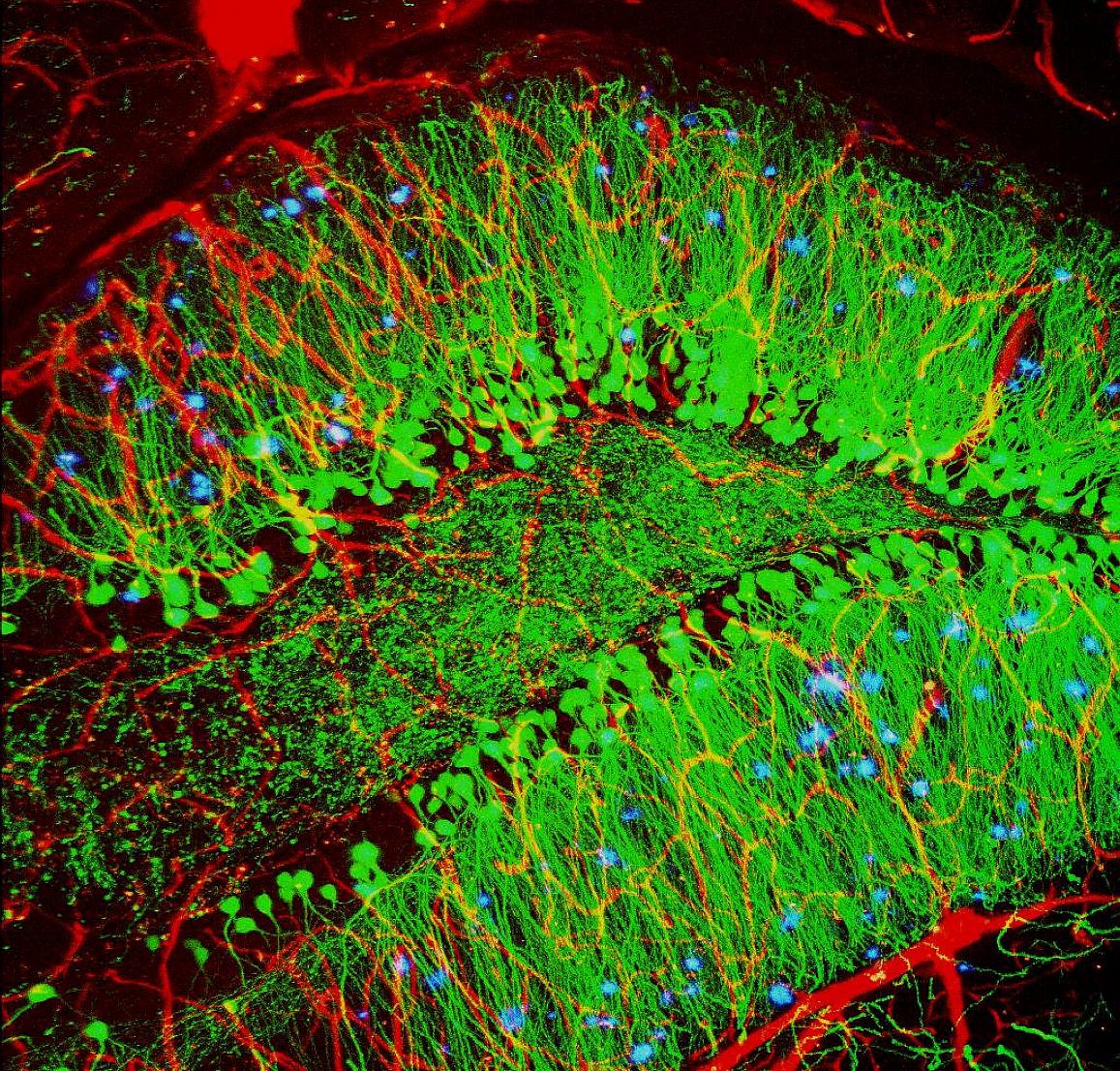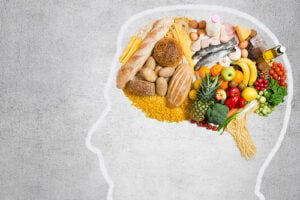NR, a form of vitamin B3, prevented neurological damage and improved cognitive and physical function in a new mouse model of Alzheimer’s. NR is a form of vitamin B3 that goes by the supplement name, “Nicotinamide Riboside”(NR).
These results suggest a potential new target to treat Alzheimer’s. The study, by researchers at The U.S. NIH National Institute on Aging (NIA), appears in the Proceedings of the National Academy of Sciences.
“National Priority”

The brains of mouse models treated with the supplement nicotinamide riboside showed reduced tau and less DNA damage than non-treated mice. (Similar to pictured)
NR acts on the brain by normalizing levels of nicotinamide adenine dinucleotide (NAD+), a metabolite vital to 4 areas of brain health:
- cellular energy
- stem cell self-renewal
- resistance to neuronal stress
- DNA repair.
In Alzheimer’s disease, the brain’s usual DNA repair activity is impaired, leading to:
- mitochondrial dysfunction
- lower neuron production
- increased neuronal dysfunction
- inflammation.
“The pursuit of interventions to prevent or delay Alzheimer’s and related dementias is an important national priority,” said Richard J. Hodes, M.D., Director of the NIA. “We are encouraging the testing of a variety of new approaches, and this study’s positive results suggest one avenue to pursue further.”
The international team of scientists was led by Vilhelm A. Bohr, M.D., Ph.D., senior investigator and chief of the Laboratory of Molecular Gerontology of the NIA’s Intramural Research Program, with Dr. Yujun Hou, a postdoctoral investigator in the laboratory.
NR Reduces Alzheimer’s Tau, Increases DNA Health
Based on their studies in human postmortem brain, they developed a new strain of mice mimicking major features of human Alzheimer’s such as tau pathology, failing synapses, neuronal death and cognitive impairment. Using this animal model, the researchers tested the effects of an NR supplement by adding it to the drinking water of the mice. Over a three-month period, researchers found that mice who received NR showed reduced tau in their brains, but no change in amyloid-beta.
The NR-treated mice also had:
- less DNA damage
- higher neuroplasticity (activity and reorganization of brain cells associated with learning or memory)
- increased production of new neurons from neuronal stem cells
- lower levels of neuronal damage and death.
In the hippocampus area of the brain – in which damage and loss of volume is found in people with dementia – NR seemed to either clear existing DNA damage or prevent it from spreading further.
Better Behavior & Memory
The NR-treated mice also performed better than control mice on multiple behavioral and memory tests, such as water mazes and object recognition. NR mice also showed:
- better muscular and grip strength
- higher endurance
- improved gait.
The research team believes that these physical and cognitive benefits are due to a rejuvenating effect NR had on stem cells in both muscle and brain tissue.
“See an Effect in Alzheimer’s”
“We are encouraged by these findings that see an effect in this Alzheimer’s disease model,” said Dr. Bohr. “We are looking forward to further testing of how NR or similar compounds might be pursued for their possible therapeutic benefit for people with dementia.”
Next steps for the research team include further studies on the underlying mechanisms and preparations towards intervention in humans.
MORE INFORMATION:
- The team’s work also included contributions from researchers at the Danish Aging Research Center at the University of Aarhus, and the Center for Healthy Aging at the University of Copenhagen. The Bohr lab has a Cooperative Research and Development Agreement — which allows NIH investigators to join colleagues from industry and academia to pursue common research goals — with ChromaDex Corp.
SOURCE:
- About the National Institute on Aging: The NIA leads the federal government effort conducting and supporting research on aging and the health and well-being of older people. It provides information on age-related cognitive change and neurodegenerative disease specifically at its Alzheimer’s Disease Education and Referral (ADEAR) Center at www.nia.nih.gov/health/alzheimers.
- About the National Institutes of Health (NIH): NIH, the nation’s medical research agency, includes 27 Institutes and Centers and is a component of the U.S. Department of Health and Human Services. NIH is the primary federal agency conducting and supporting basic, clinical, and translational medical research, and is investigating the causes, treatments, and cures for both common and rare diseases. For more information about NIH and its programs, visit www.nih.gov.












Thanks for the article! You can learn more about NR, NAD, and Alzheimers at https://raisingNAD.com/category/alzheimers/
It is with great pleasure we, Dementia meetings 2019 would like to express by personal gratitude to invite you to the “12th World Congress on Dementia and Alzheimer Rehabilitation” scheduled during April 11-12, 2019 in Stockholm, Sweden.
Email: parkedw18@gmail.com
Conference URL: https://dementia.psychiatryconferences.com/
Very insightful thank you. I will look to the Peer Review Scientific Studies.